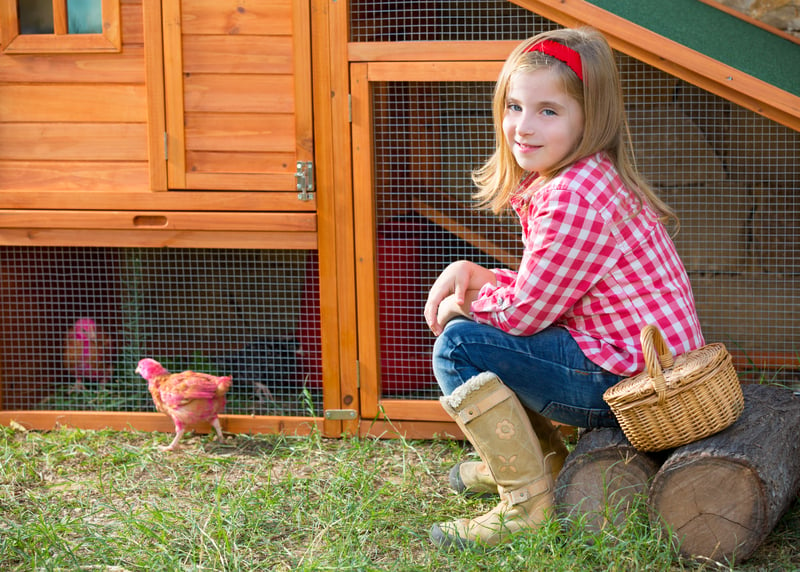As we become more conscious of how our food reaches us and what it contains, people are increasingly looking inwards to become more environmentally aware and understand our place in the world.
In recent years, the increase in residential homes keeping their chickens has grown enormously. Over 5 million chickens are being kept in homes across the UK. To put that into perspective, there are only just over 1 million hamsters! In the two years from 2018 to 2020, over 200,000 more households now keep chickens.
There’s more to keeping chickens than just having space in the garden. With the rise in our new egg-laying, meat-supplying garden guests, it’s only natural that there’s an increase in the number of chicken coops. After all, they need somewhere to live too.
Chicken houses, just like our own, need cleaning regularly. Making sure your wooden chicken coop is clean, free from bacteria and gives the birds somewhere safe to roost is a key aspect of keeping chickens, but how do you do that? Here are some top tips on maintaining your coop so it lasts as long as possible.
Chicken Coop Cleaning Tips
Cleaning anything is never going to be top of anyone’s list of chores, but when it comes to chicken coops, hygiene is crucial for the wellbeing of the birds. The first tip for cleaning the coop is to set a schedule.

A full clean should be done once a week, but smaller ‘in-between’ cleans should be done every other day. You’ll first need to shovel or scrape all the dirt, manure, shavings, cobwebs and loose feathers out. If you leave it too long, you’ll find that the droppings dry like cement and make it very difficult to remove. Once clear, use a hose to spray down the walls, floors, roosting perches and nesting boxes to remove the fine dust and soften any hardened deposits.
Many people will use bleach when cleaning a bathroom, but it’s not a good idea when it comes to chicken coops. Bleach is simply too harsh for the birds to bear and can also be toxic to the chickens if not dried properly. A good substitute is to use white vinegar mixed with equal parts of water to help disinfect the coop.
Once clean, allow it to air-dry. You can also use sunlight as a disinfectant, and good circulation of fresh air will help. This can be done as part of your day-to-day maintenance routine. This also reduces the vinegar smell that may be lingering.
Once clean and dry, it’s time to refresh the coop. The materials you use will go a long way in keeping the chickens happy and healthy. You want to use something that is both absorbent and helps with insulation. If it composts as well, then even better.
Choosing things like shredded cardboard and dust-extracted shavings are better than straw (too dusty and not very absorbent), sawdust, hay or shredded bark. The latter two can contain harmful spores.
Of course, cleaning a chicken coop means that you need to find somewhere for your feathered friends to be while you’re doing your thing. If you have the securable space to let the chicken roam free, then that’s a great option. If not, then letting them into a secure run is probably the best option. Bear in mind, this will need cleaning too.
Carrying out regular maintenance of your chicken coop will mean that it will last many years and provide the chickens with a clean, healthy and safe place to live. There are worse neighbours to have and hamsters don’t lay eggs. So, for all your chicken coop or run needs, our team at Eggshell can help. We supply everything from runs and coops to rabbit hutches. Call us today on 01903 756121 or visit our contact page for more details.
